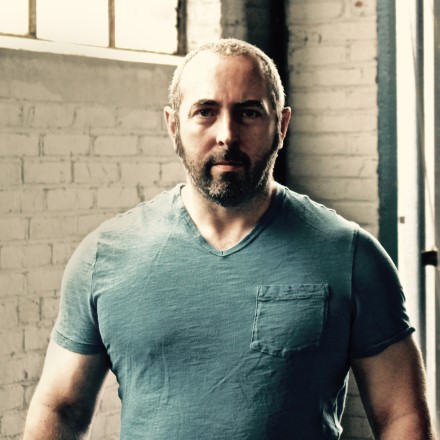Crime and violent crime may at times be opportunistic, but it is never truly random, yet unfortunately we often use randomness and opportunity as synonyms, when in fact they aren’t the same thing. If we leave a window open which a burglar uses to enter our house, we may curse our luck, and argue to ourselves that we were subjected to a random crime i.e. what are the chances that a burglar would be walking past our house on the one day, when we forgot to close a window? The point is, we helped provide the burglar with an opportunity that other house owners in the area didn’t; it is unlikely that the burglar was specifically targeting our house, much more likely that they were trawling the area, looking for opportunities. There would also be other factors that go into creating the opportunity, such as: does the house look like it is worth breaking into - does it look like it contains the particular valuables/items the burglar is looking for, such as pharmaceuticals or electronic goods etc.? If we can understand what goes into “creating” an opportunity, we can look to change those things and reduce the likelihood of being targeted by predatory individuals, whether it’s for burglary, mugging, or a violent assault.
When we look at risk assessments, one of the elements that is difficult to alter is the threats that we face e.g. we can’t change the number of muggers and burglars out there – social policy may be able to do this, but as an individual, this is largely out of our control. When we look at reducing the opportunities we present to a predatory individual, we are in fact looking at two things: target hardening, and victim displacement. We are looking to make ourselves and our assets difficult for a predator to have access to, in relation to other available targets in the locale. If our home is a harder nut to crack than our next-door neighbors’, and a burglar perceives them to contain equal assets, then their house will be targeted rather than ours (this is the same for muggings – predators choose us by comparing us to, and selecting us from, other potential victims). It is worth noting this because one of the common excuses I hear people make for not taking security precautions regarding burglary is, “if they really want to break in to my house, they’ll find a way.” Unless your home contains specific items of worth that no others in the vicinity contain, there is no reason why anyone would “really want” to break in to your home if there are easier ones around. So what opportunities does your house create for a burglar, that others around you don’t (and vice versa)? Likewise, mugger selects his victims from a pool; so what opportunities might you create for them, that others around you don’t? What makes us, and/or our assets, easy targets?
Ease of access/accessibility creates opportunities for predatory criminals. Rarely do I give people access to myself, and I don’t stop moving if I do engage. This may appear as rudeness to brush off someone approaching me on the street, however I see few ways I could genuinely be useful to somebody, and I’m not willing to compromise my safety. There are people who need assistance, and I will make myself accessible to them - such as the woman who needs a hand carrying a stroller down a flight of stairs - however this is me initiating access, not responding to it. I’m extremely suspicious of anyone who wants to engage me in conversation, especially so if they want to stop me from moving as they do. Being stationary is often used/seen as an invitation for access, and creates opportunities for predatory individuals to engage with us. Looking at home security, not having clear delimiters and boundaries around your property also “invites” access to it – it should be obvious to anyone around if somebody is on your property or not, and in what capacity. Accessibility creates opportunities for predatory individuals, and is something to avoid.
Predatory criminals usually want and seek privacy in which to commit their crimes. By giving them this, you are creating opportunities for them. When you park your car, is it visible to other people, or is it in a place where there is little traffic, either vehicular or foot? Are the entrances to your property visible to passers-by on the street, or to neighbors, or do they afford potential criminals privacy? Forget good lighting, and well-lit places, unless they enjoy natural surveillance i.e. there are a number of eyes constantly or regularly on them. Our homes are perhaps the most private places we have – who do we let into them? Most sexual assaults against women happen in their homes or somebody else’s, by someone they know - forgot the “stranger jumping out from behind a tree” myth – such attacks happen, but they’re rare. Who we allow to share our privacy is important from a personal safety perspective. Affording somebody access to us, where they enjoy privacy, is not an opportunity we should create easily for people. In my very, very younger days I’ve fallen foul of the, “look, I just want to talk to you” ruse to get me to leave a populated place to go somewhere more private/less visible; and more than once, it was a setup. I’m also very wary of anyone who is constantly looking around – checking their privacy – to see if anyone is observing them; couple this with hands I can’t see, and I’m definitely making distance.
This may seem paranoid, however I’ll back it up with some academia. There is a philosophical principle known as Occam’s Razor. It states that if there are two explanations for a situation, the simpler one is usually the correct one. To put it another way, the more assumptions you must make to get an explanation to work, the more likely it is to be the wrong one. If somebody is looking around as they approach you, or talk to you, what assumptions would you have to make that they don’t have harmful intent towards you? If somebody wants to move you from one place to another, or is trying to get you alone, what assumptions would you have to make that they don’t have harmful intent towards you? Another way to look at this, would be to ask what opportunities you create for somebody by letting them do these things, knowing that predators by and large desire privacy. Does using Occam’s Razor, mean you sometimes get it wrong? Yes, it’s a tool that “usually” gets it right, but not “always” however as Clint Eastwood said in “Dirty Harry”, “if you want a guarantee, buy a toaster”. I’ll accept usually, because always doesn’t exist.
Criminals and predatory individuals require opportunities, and we need to look at and understand the opportunities we present to them. Accessibility and communication creates opportunity, as does privacy. If we can limit these three things, we naturally increase our personal safety, and reduce some of the vulnerabilities that put us at risk of becoming a victim.
Share:

Gershon Ben Keren
2.8K FollowersGershon Ben Keren, is a criminologist, security consultant and Krav Maga Instructor (5th Degree Black Belt) who completed his instructor training in Israel. He has written three books on Krav Maga and was a 2010 inductee into the Museum of Israeli Martial Arts.
Click here to learn more.
